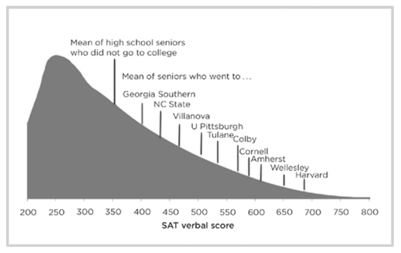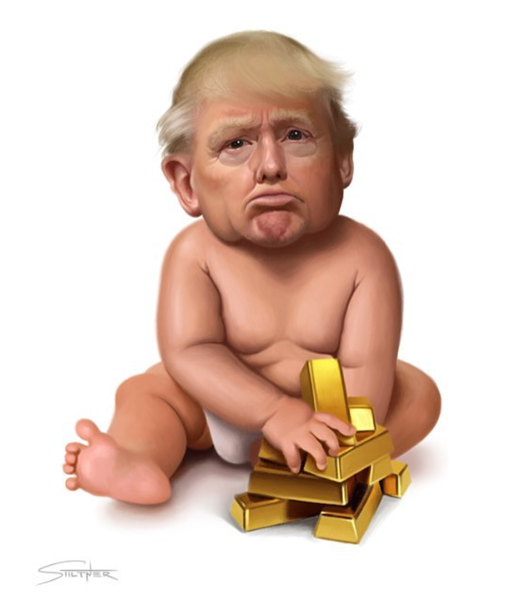Karma and the Curse of the Cogniscenti
Recent political events fuel my desire to understand the cultural divide that threatens to destabilize our country indelibly. And so I turned to Charles Murray’s prophetic 2012 book, Coming Apart, which suggests that our current political climate was ignited, in significant part, by a growing cultural disconnect between the “cognitive elite” and the rest of the country. (Robert Reich, Chancellor’s Professor of Public Policy at the University of California at Berkeley and Senior Fellow at the Blum Center for Developing Economies, calls this “secession of the successful.”)
In Chapter Two, “The Foundations of the New Upper Class,” Murray describes the increasing intellectual segregation in college admissions. According to Murray’s research, up until the early 1960s, the average academic admissions benchmarks (notwithstanding the discriminatory socio-economic criteria) were rather homogeneous among schools. In other words, the difference between the average state college student and the Harvard student with respect to IQ was as little as two points. But between the 1950s and 1960s, that gap widened as did the resulting test scores. For example, SAT mean verbal scores at Harvard, Murray states, rose from an average of 583 in 1952 to 678 by 1960. (Today’s Harvard mean is 690 in 1960s terms.) Yet in 1960, Villanova students, who were previously comparable to Harvard students just eight years before, scored a mere 450 mean score.
Sources: Siebel, 1962; College Entrance Examination Board, 1961. Adapted from Herrnstein and Murray, 1994.
As universities became more academically selective, the college landscape became increasingly stratified across cognitive lines. In turn, this newly formed concentration of brilliant minds helped to create islands of power and prosperity that remain culturally separate from those less “elite.” The ramifications, regardless of one’s political persuasion, bring to light the escalating culture wars between the cognoscenti and the hoi polloi.
Because, according to Murray, admission to selective and highly selective colleges correlates with economic success (most likely because these schools admit the intellectual crème de la crème in the first place), an admissions arms race has ensued, especially among cognitive elite families. I’ve witnessed this personally. Now that my sons are nearing the end of their high school careers, I cannot hide from the Machiavellian maneuvering employed by a minute, but obvious handful of parents and students. (Most of the parents and students I know are wonderful, I must add.) I’ve witnessed parents pressure and threaten their children into “success” while watching others wield their economic power like a lightsaber that slashes down admissions barriers through financial contributions. But most disheartening are the students who perfect the art of “truthiness” and appropriation. Interestingly, many of these student fabulists have the intelligence to stand on their own merit, yet choose to cross the line of veracity for self-aggrandizement and the cut-throat satisfaction of winning at all costs.
In my role as a high school mentor, some students recently brought to my attention substantial evidence of another student’s deception: blatant appropriation of their extracurricular work and deliberate attribution of group awards and events exclusively to himself. They instantly recognized this student’s ploy and fabrications, yet feel powerless to do anything other than watch the perpetrator be unfairly lauded. They simply don’t trust the mechanisms in place to protect their anonymity, and thus, fearing retribution, stay silent. Silently outraged. And unfortunately, because there exists an inherent conflict of interest that prevents my further involvement, I, too, remain silent — in an effort to model ethical behavior, ironically.
In doing my best to advise them— to merge ideality with reality to form a feasible suggestion — a harsh realization suddenly dawns: Their plight is but a microcosm of the ethical erosion playing out on a national scale. Sadly, these kids cannot look to Washington (nor Twitter for that matter) to exemplify strength of character, integrity, and honesty, nor trust that merit triumphs over deceit. Their national role models are missing in action.
Credit: Andrew Stiltner
My friends, upon hearing of the students’ plight, suggest that karma (in the Western sense) will ultimately remedy their feelings of injustice. But does it? And will it? Can we merely trust the universe to take care of those who perpetrate fraud, who stretch the truth beyond recognition, who have no restraint in exploiting the work of others? Or are we morally obligated to speak out?
The concept of cosmic retribution, divine and human, has existed for millennia. “Whoso diggeth a pit shall fall therein: and he that rolleth a stone, it will return upon him,” proclaims Proverbs 26:27; William Shakespeare in Twelfth Night wrote, “Thus the whirligig of time brings in his revenges.” We’ll never know whether these statements represent attempts to impart order on wrongs committed or immutable laws of the universe. Generally though, I would say that yes, what goes around, comes around — eventually. But strewn along the path to justice may be innocent lives, trounced by the footsteps of perpetrators yet to be caught.
So the students sit, and wait, and hope that someone will step up and do the right thing. Just as half the nation does.


